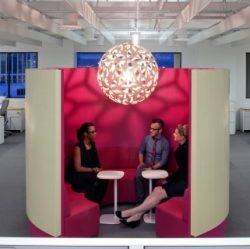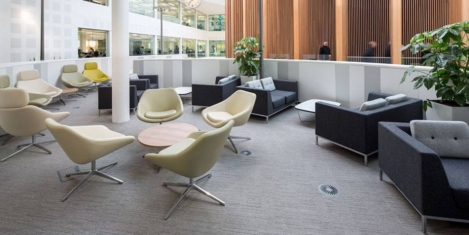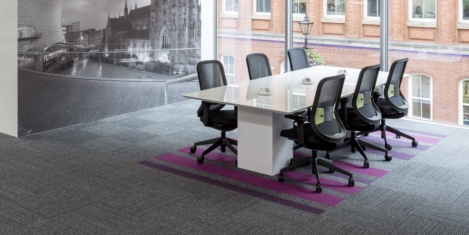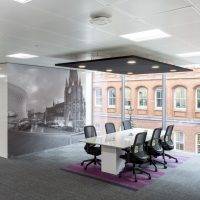October 13, 2016
Collaborative spaces are replacing the traditional office boardroom 0
 Connectivity and flexible working means that office meetings are shrinking in size as employees fail to show up to almost half of scheduled meetings; leaving the traditional large workplace boardroom obsolete. Teem’s Workplace Productivity Analytics Index carries out a regular aggregated analysis of meeting room data from over 2,000 customers worldwide and found that globally, only six percent of meetings have 10 or more attendees, while 76 percent of meetings include only one to three participants. In addition, 20 percent of meetings are booked within 15 minutes of taking place, making it difficult for facilities and IT managers to plan suitable space and secure equipment needs for employees. The data also claims that large meetings can drain productivity, which is why businesses are increasingly investing in large conference rooms and instead opt for collaborative spaces where smaller groups can meet privately.
Connectivity and flexible working means that office meetings are shrinking in size as employees fail to show up to almost half of scheduled meetings; leaving the traditional large workplace boardroom obsolete. Teem’s Workplace Productivity Analytics Index carries out a regular aggregated analysis of meeting room data from over 2,000 customers worldwide and found that globally, only six percent of meetings have 10 or more attendees, while 76 percent of meetings include only one to three participants. In addition, 20 percent of meetings are booked within 15 minutes of taking place, making it difficult for facilities and IT managers to plan suitable space and secure equipment needs for employees. The data also claims that large meetings can drain productivity, which is why businesses are increasingly investing in large conference rooms and instead opt for collaborative spaces where smaller groups can meet privately.

























 When former Google employee Marissa Mayer joined Yahoo as its CEO in 2012, she inherited the company’s vast problems. Though it was once seen as one of the first tech behemoths, Yahoo’s inability to come up with ground breaking products like Google and others, put it in a slow, steady decline. Mayer was immediately tasked with trying to reinvigorate the stagnating company. Her focus was to find a way to identify and retain talent, while phasing out ineffective employees. However, Yahoo’s new management policies have brought about much debate and criticism from HR experts. A controversial book by journalist Nicholas Carlson titled “Marissa Mayer and the Fight to Save Yahoo!” paints a highly critical view of Mayer’s first years as CEO. In response others have defended her, arguing that she has done the best she can with the resources available, but has become a scapegoat for poor management, like so many other women in powerful positions.
When former Google employee Marissa Mayer joined Yahoo as its CEO in 2012, she inherited the company’s vast problems. Though it was once seen as one of the first tech behemoths, Yahoo’s inability to come up with ground breaking products like Google and others, put it in a slow, steady decline. Mayer was immediately tasked with trying to reinvigorate the stagnating company. Her focus was to find a way to identify and retain talent, while phasing out ineffective employees. However, Yahoo’s new management policies have brought about much debate and criticism from HR experts. A controversial book by journalist Nicholas Carlson titled “Marissa Mayer and the Fight to Save Yahoo!” paints a highly critical view of Mayer’s first years as CEO. In response others have defended her, arguing that she has done the best she can with the resources available, but has become a scapegoat for poor management, like so many other women in powerful positions.










October 7, 2016
Are we seeing the workification of home or the homification of work? 0
by Anna King • Comment, Flexible working, Workplace design
(more…)